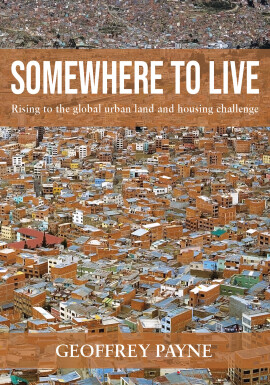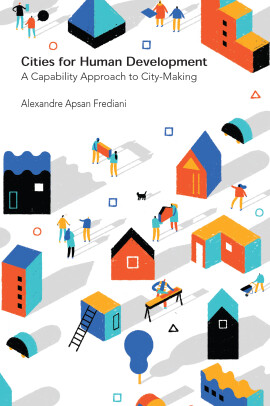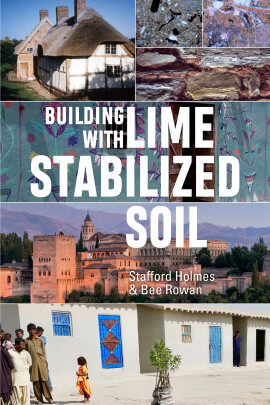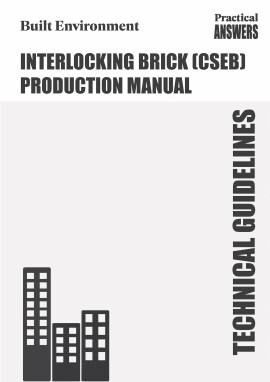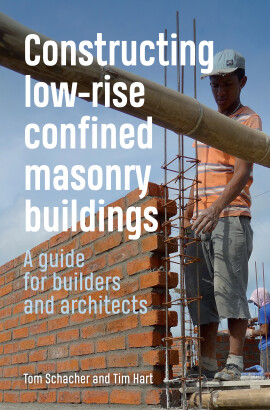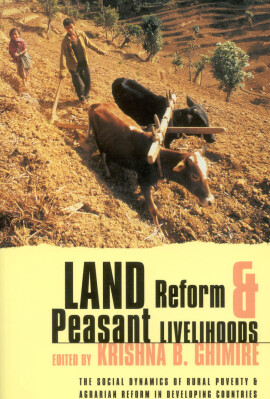
Land Reform and Peasant Livelihoods
The social dynamics of rural poverty and agrarian reform in developing countries
This critical analysis of the performance of land-reform programmes on a world-wide basis is written by several prominent scholars who have extensive experience in field research, advisory work and the implementation of reform programmes. They provide empirical evidence from many countries how improved access to land is positively linked to production, investment, employment, food security and poverty reduction. They examine the reasons for success and failure as well as shortcomings of past reform efforts and review the role of the different actors in this process. The book provides a timely and professionally proficient contribution to the discussion on land reform which has in recent years re-appeared on the agenda of national governments and development agencies. The authors scrutinize the inadequacy of the market-oriented approach to land reform which is linked to the structural adjustment policies of the World Bank and advocate convincingly a flexible approach toward re-distributive reforms as the most appropriate strategy towards alleviating rural poverty. This book is published in association with the United Nations Research Institute for Social Development.
Published: 2001
Pages: 272
eBook: 9781780443577
Paperback: 9781853395277
| 9781780443577.000 |
|---|
Krishna Ghimire
Krishna Ghimire is Project Leader and researcher at the UN Research Institution for social Development, Geneva.
The Political Economy of Xenophobia in Africa
Zimbabwe and the Quest for Development: Rethinking the Xeno-Ethnophobia Tint and the Land Reform Question
Shulika, Lukong Stella
Sabi, Stella Chewe
2018
https://doi.org/10.1007/978-3-319-64897-2_12 [Citations: 0]La Vía Campesina and its Global Campaign for Agrarian Reform
BORRAS JR, SATURNINO M.
Journal of Agrarian Change, Vol. 8 (2008), Iss. 2-3 P.258
https://doi.org/10.1111/j.1471-0366.2008.00170.x [Citations: 90]Land reform: still a goal worth pursuing for rural women?
Jacobs, Susie
Journal of International Development, Vol. 14 (2002), Iss. 6 P.887
https://doi.org/10.1002/jid.934 [Citations: 14]Movements from below: land rights movement in Nepal
Karki, Arjun K.
Inter-Asia Cultural Studies, Vol. 3 (2002), Iss. 2 P.201
https://doi.org/10.1080/1464937022000000129 [Citations: 11]Inclusion–exclusion in public policies and policy analyses: the case of Philippine land reform, 1972–2002
Borras, Saturnino M.
Journal of International Development, Vol. 15 (2003), Iss. 8 P.1049
https://doi.org/10.1002/jid.1035 [Citations: 2]Land Tenure and the “Evidence Landscape” in Developing Countries
Unruh, Jon D.
Annals of the Association of American Geographers, Vol. 96 (2006), Iss. 4 P.754
https://doi.org/10.1111/j.1467-8306.2006.00515.x [Citations: 28]The ‘development state’ in Latin America: Whose development, whose state?
Petras, James
Veltmeyer, Henry
The Journal of Peasant Studies, Vol. 34 (2007), Iss. 3-4 P.371
https://doi.org/10.1080/03066150701802876 [Citations: 15]Questioning Market‐Led Agrarian Reform: Experiences from Brazil, Colombia and South Africa
Borras, Saturnino M.
Journal of Agrarian Change, Vol. 3 (2003), Iss. 3 P.367
https://doi.org/10.1111/1471-0366.00059 [Citations: 122]Gender and Land Reforms: Comparative Perspectives
Jacobs, Susie
Geography Compass, Vol. 3 (2009), Iss. 5 P.1675
https://doi.org/10.1111/j.1749-8198.2009.00257.x [Citations: 10]Agrarian reforms
Jacobs, Susie
Current Sociology, Vol. 61 (2013), Iss. 5-6 P.862
https://doi.org/10.1177/0011392113486660 [Citations: 7]State-Society Dynamics in Contemporary Brazilian Land Reform
Wolford, Wendy
Latin American Perspectives, Vol. 43 (2016), Iss. 2 P.77
https://doi.org/10.1177/0094582X15623768 [Citations: 8]The Philippine Land Reform in Comparative Perspective: Some Conceptual and Methodological Implications
BORRAS, SATURNINO M.
Journal of Agrarian Change, Vol. 6 (2006), Iss. 1 P.69
https://doi.org/10.1111/j.1471-0366.2006.00115.x [Citations: 18]
